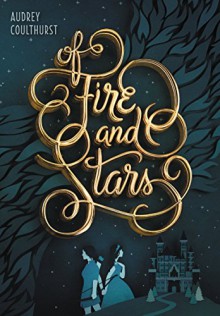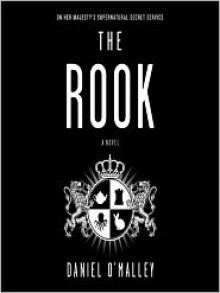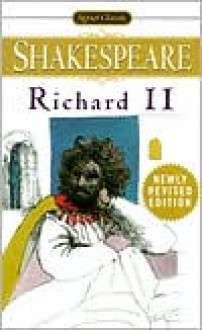
Dennaleia (Denna) is a princess of the northern kingdom of Havemont. She's engaged to be married to Crown Prince Thandilimon (Thandi) of Mynaria for political reasons I can't recall. Denna has a secret: she can perform fire magic. Unfortunately, Mynaria is becoming more and more anti-magic. Recusants, illegal magic users, are being hunted down, and things only get worse after a member of the royal family is assassinated by someone who is likely a Recusant.
While everyone else is quick to blame the Recusants and the nearby country of Zumorda for Mynaria's recent problems, Denna and Mare, the Mynarian princess, are the only ones who suspect something else might be going on. As Mynaria prepares for Denna and Thandi's upcoming marriage, Denna and Mare work together to uncover the truth...and gradually realize that they've fallen in love with each other.
I'll start by talking about the good. For the most part, the progression of Denna and Mare's relationship from rocky, to being friends, and finally to falling in love was pretty good. Although Mare would have preferred to have as little as possible to do with Denna when they first met, she was forced to help Denna learn how to ride horses (riding isn't a thing people do in Havemont) and got to know her more than she probably would have otherwise. Their eventual romance had a solid foundation and didn't feel like it appeared out of nowhere.
I was also happy to see that homophobia wasn't one of the things standing between Denna and Mare. From what I could tell, bisexuality was the default in this world. As far as marriage went, however, things were a little fuzzier. It sounded like same-sex marriages existed, but also like same-sex political marriages were less likely than political marriages between men and women.
Now it's time to get into the things I didn't like, and unfortunately the list is long.
First and foremost, Of Fire and Stars was boring. It took ages for things to happen and for Mare and Denna's investigations to move forward. I wanted more tense political intrigue, and instead I got occasional badly executed spying attempts, some library research, and Denna stressing over the possibility that her magical abilities would be discovered. Most of that was pushed into the background after Denna and Mare realized that they loved each other. I should have been rooting for their relationship and instead I couldn't wait for the book to finally be over.
The book alternated between chapters from Mare's POV and chapters from Denna's POV (first person past tense). Mare was a tomboy who preferred dressing up as a man and going information-gathering in local taverns to putting on gowns and spending time at court. Denna had been trained to be a perfect princess since birth. Coulthurst could have alternated between chapters devoted to Mare's spying activities and chapters in which Denna made connections at court, collected potentially useful court gossip, and did a bit of research in the palace library.
Instead, readers got the former (sort of) but only the barest sliver of the latter. Both Denna and Mare dismissed court gossip as something only silly court ladies participated in, an attitude that boggled my mind. Was I really supposed to believe that only commoners in taverns gossiped about the current state of affairs in the country, city, and palace? In the end, the only useful thing Denna got to do was library research.
Denna felt like little more than a sidekick throughout much of the story, even going so far as to beg Mare to take her on one of her trips to a local tavern. Mare, meanwhile, didn't strike me as being nearly as competent as the author wanted readers to believe. She'd have died or had her identity uncovered many times over if it hadn't been for her best friend Nils, one of the few halfway intelligent and capable characters in the book. She was also annoyingly childish, kicking her shoes off at things (bushes, doors) multiple times.
The way Mare and Denna's romance played out caused me to dislike them both. They were both selfish and frustrating. Mare viewed Denna moving forward with her and Thandi's wedding as choosing Thandi over her. Never mind that it was a political marriage and that there would be consequences for both of their countries if Denna suddenly announced that she had fallen in love with Mare and wanted to marry her instead.
Denna had a similar reaction when Mare considered agreeing to a political marriage of her own that would have at least guaranteed she could work with horses on a daily basis. If Denna had had her way, Mare would have stayed by her side for the rest of her life, unmarried and perpetually available for stolen kisses. Never once did she consider Mare's feelings and that it might be best for the person she supposedly loved to find what happiness she could elsewhere.
Although the book has a proper ending, there's definitely room for a sequel, and I see that one is supposed to come out sometime in 2019. I don't currently plan on reading it.
Extras:
There's a map at the beginning of the book. Somehow I didn't manage to see it until after I'd finished reading.
(Original review posted on A Library Girl's Familiar Diversions.)

 Log in with Facebook
Log in with Facebook 










